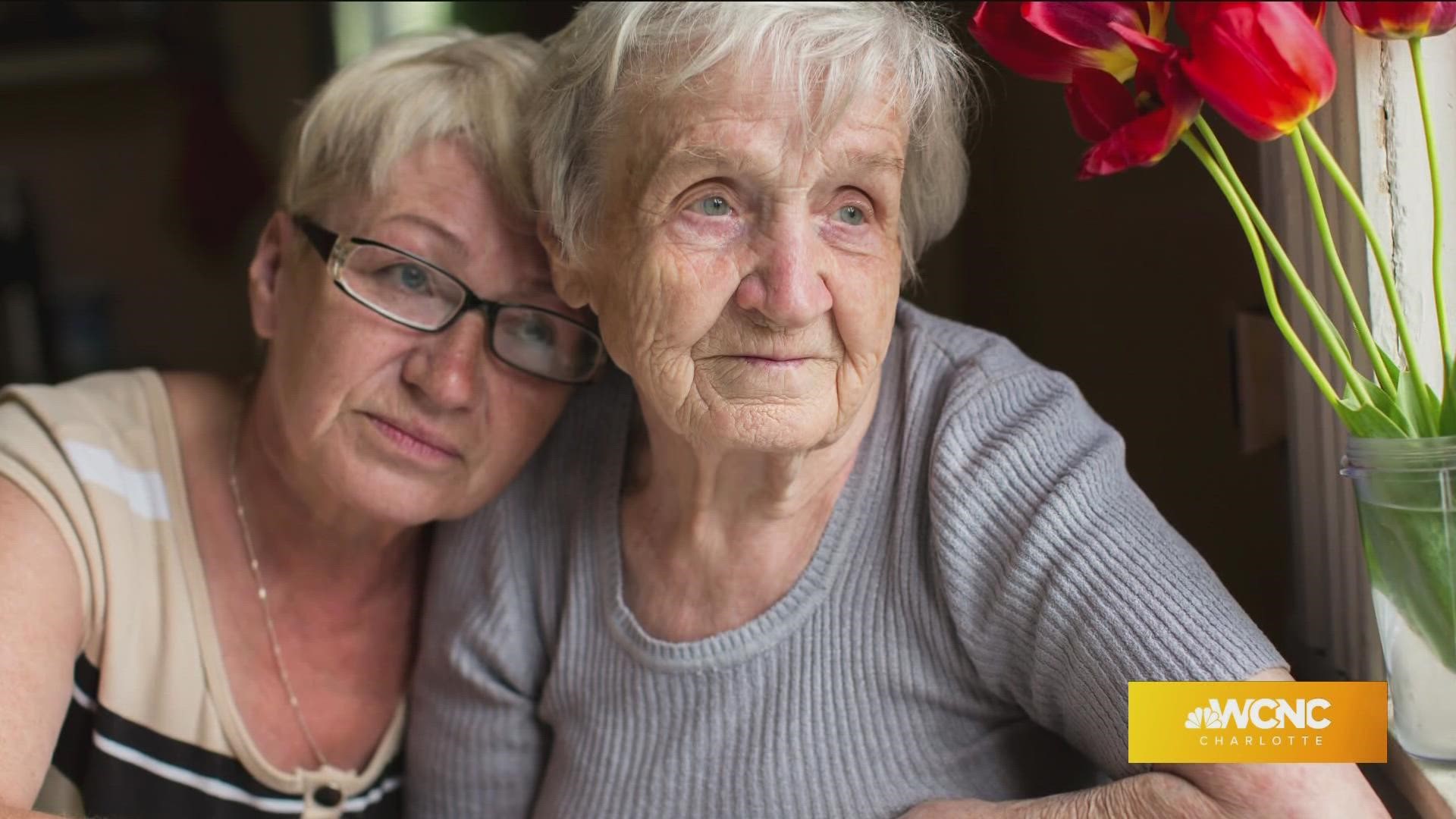CHARLOTTE, N.C. — Having a conversation about preparing for aging can be challenging. Whether talking to other family members or mom and dad, topics like finances, legal issues, estate planning, living situations, care and treatment plans are tough. Yet, the sooner you have them, the better. Here to answer these tough questions is Aging Expert, Anthony Cirillo.
When is the best time to have these conversations?
1. When there is not a crisis. A crisis is the exact wrong time to solve a situation. You react emotionally. Make wrong decisions and can be taken advantage of by unscrupulous people.
2. I call it Educated Aging - preparing for your older years physically, financially and mentally and it can start when you are young.
3. You need to know your loved ones’ wishes now and realize due to changes in health, finances, housing, their wishes could change. That is why this is an ongoing dialogue and not a one and done conversation.
4. There may be natural openings that occur. For example, during bad weather, you might talk about future housing situations. Mom, what would you do if a flood, hurricane, etc hit and you were here alone. Or maybe her friend’s husband died. You can ask about the circumstances. Maybe they had a will. Maybe they didn’t. Maybe they had insurance. Etc.
Where do you start?
1. Start by observing. Where are the obvious areas.
2. Start where it makes the most sense. If mom and dad are in good health but their finances are a mess, start there. Do they have a financial plan? Do they have life and long-term care insurance?
3. If it’s not the finances then maybe it’s their housing. Maybe mom or dad has fallen because the house is not organized for aging in place. Can they live in the house safely with modifications? Maybe an aging in place specialist can determine this with you. Does it need to be de-cluttered? Or is it time to consider alternate living arrangements.
4. Then there is their health. Are you noticing changes? Has their eyesight deteriorated and impacted their driving. You can observe these things directly or ask their friends and neighbors.
How do you have these conversations?
1. The key here is that it is a conversation. It is not you as the son or daughter imposing your will. So there is less “I” and more “We.” If you get them to somewhat agree that advanced preparation is needed, let them express their wishes.
2. By listening and reflecting, your own opinion of the situation and the solution may be altered.
3. You are on the same time with the same goal of wanting mom or dad to live a quality of life as independently as possible.
4. Do not try to parent the parent.
Many times caregivers are alone in this. If there are siblings, how do you get them involved?
- Be Direct With Requests for Help. Many primary caregivers mistakenly assume that implied requests or subtle hints regarding assistance should be sufficient for siblings to realize that they should step up. It can be very difficult for someone on the “outside” who has never cared for an elder before to understand and anticipate a caregiver’s or senior’s needs.
- Sit down and create a list of realistic tasks or objectives that your sibling can help with. Divvy up responsibilities according to each person’s strengths.
- Know where you are starting. Siblings may be wondering how to protect the money of elderly parents from a financially dependent brother or sister. Relationship tensions may escalate if an adult child living with parents becomes overbearing or controlling. These are real issues. For more information visit TheAgingExperience.com

